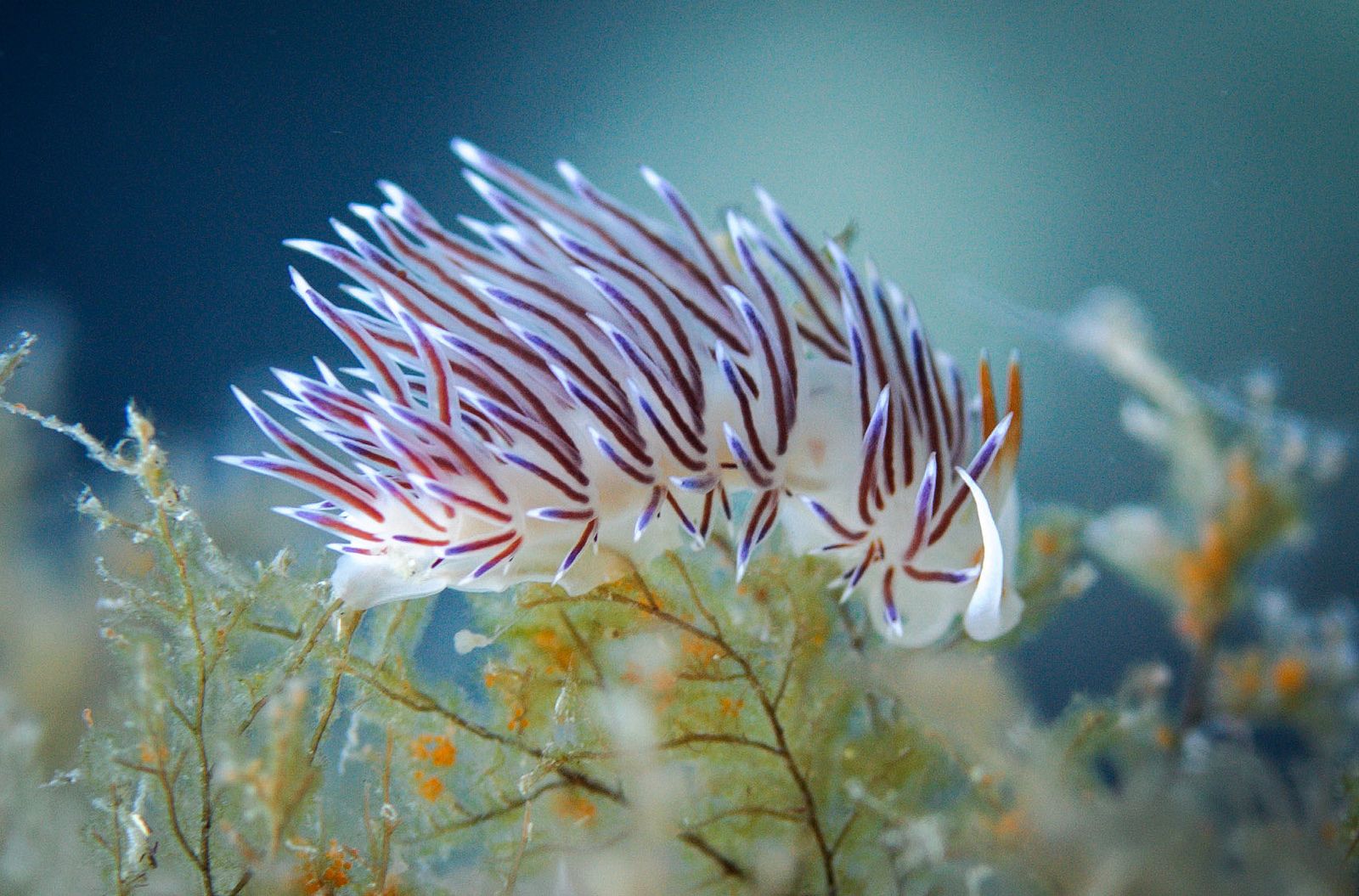
Grocery shopping is just too hard for sea slugs—so instead of hunting down a variety of small prey to get the food they need, they've come up with an easier way: they target prey that has just eaten. It's a strategy called kleptopredation, which literally means preying by theft, and the slugs' use of it has been documented in a new paper published in the journal Biology Letters.
The scientists studied a species called Cratena peregrina, a type of nudibranch, or colorful sea slug, that grows up to a little more than an inch long and is particularly common in the Mediterranean Sea. The slug prefers to snack on hydroids, which look sort of like Linus's sad Christmas tree but can cause a nasty sting to humans who get in their way. One full-grown slug can eat as many as 500 hydroids every day.
The hydroids themselves feast on plankton, microscopic critters including baby molluscs floating throughout the oceans—and feast is definitely the right word for it, since scientists believe their munching keeps plankton populations under control.
So the scientists wanted to see how the sea slugs responded to plankton, to hungry hydroids, and to hydroids that had been fed. They found that the slugs ate twice as many full hydroids as hungry ones, and that it took them about twice as long to eat the newly fattened prey. They aren't sure exactly how the sea slugs could tell hungry and full hydroids apart, or captured and free plankton.
That means that even though the sea slugs have a reputation for being fierce hunters of hydroids, a large proportion of their diet actually turns out to be tiny plankton captured secondhand, a strategy called opportunistic feeding. Not nearly as frightening.
But as grim as the situation may seem, there may actually be a tiny silver lining for the hydroids doing all the work too: The team behind the paper suggests that the sea slugs may eat fewer hydroids than they would if they didn't target ones that had just eaten.
Stealing other critters' food in and of itself has a long and illustrious history—think hyenas and lions snatching each others' food or the gull that steals your french fries at the beach. But eating other critters to get at their last meal takes it to a whole new level. Turns out, if you're creative enough, everything can be outsourced.
Uncommon Knowledge
Newsweek is committed to challenging conventional wisdom and finding connections in the search for common ground.
Newsweek is committed to challenging conventional wisdom and finding connections in the search for common ground.
About the writer
Meghan Bartels is a science journalist based in New York City who covers the science happening on the surface of ... Read more
To read how Newsweek uses AI as a newsroom tool, Click here.








